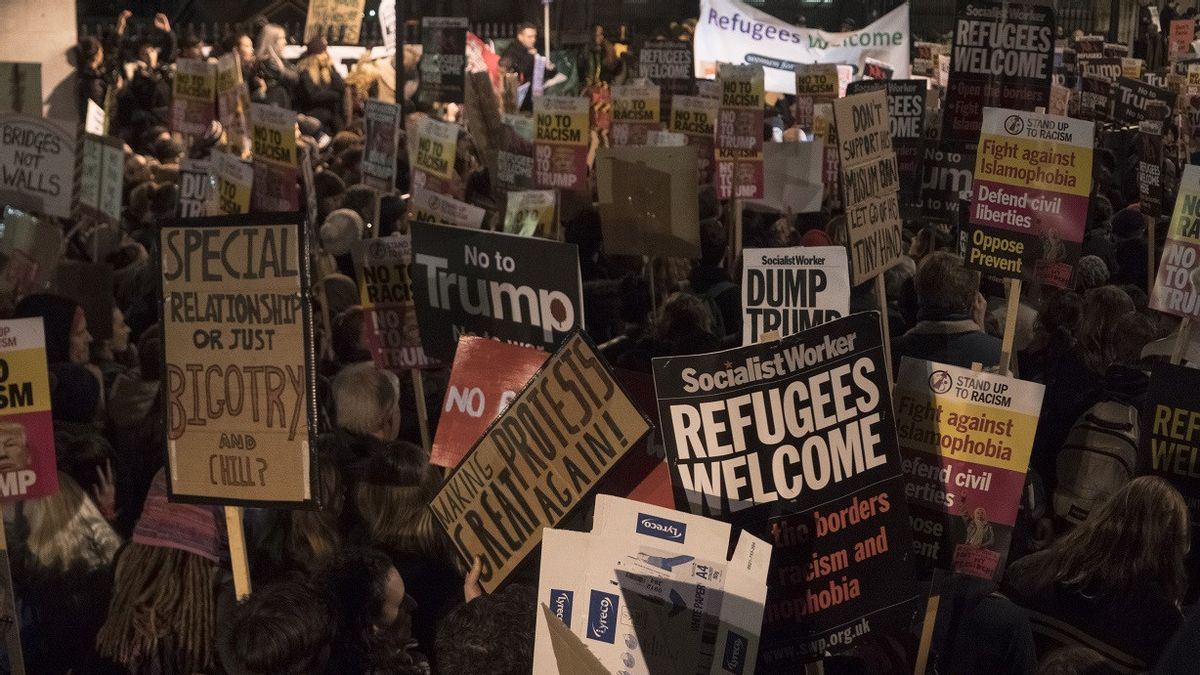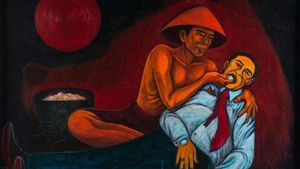JAKARTA - The United States (US) House of Representatives passed a bill (RUU), which would limit the ability of any US President to enforce a religion-based travel ban.
The bill, which will be submitted to the US Senate for approval, was approved by vote 218-208 in the US House of Representatives on Wednesday, April 21 local time.
Informally known as the 'No Ban Act', this bill emerged as a response to the travel ban to the US from a number of Muslim-majority countries issued by Donald Trump while serving as president.
"The Muslim ban is tearing apart families, holding lives for years and labeling Muslims, Africans and people who are being targeted by threatening outsiders," said Madihha Ahussain, adviser to Muslim Advocates, a US civil rights group. , Thursday 22 April.
"We have to make sure that no president can impose a discriminatory ban like this again. With the passing of the No Ban Law in the DPR, we are taking big steps to ensure that they will not do so," he continued.
Criticized as discriminatory and punitive, it has direct and far-reaching consequences for US Muslims and their families, refugees and others stranded in third countries.
It divides families, denies people's access to health care, and prevents friends and relatives from attending weddings, funerals and graduations.
"The Muslim and African ban abuses executive power to discriminate against and harm many people, based solely on their national or religious origins," said Marielena Hincapié, executive director of the National Center for Immigration Law, in a statement on Wednesday.
"The No Ban Act will ensure that no president can use this enormous and dangerous power again," continued Hincapié.
The No Ban Act will revise US immigration laws to prohibit discrimination on the basis of religion and will limit the president's ability to issue executive orders imposing future travel restrictions.
Although there has been an executive order to cancel the travel ban, US legislators consider it important to take legislative steps in this regard, to prevent it from happening in the future.
"Donald Trump's Muslim ban is a dark stain in the history of our country, and it must not happen again," said Democratic Representative Don Beyer.
To note, the travel ban from a number of Muslim-majority countries, issued by Donald Trump shortly after taking office in 2017. After two 'stumbling' in court, the ban was reorganized as a national security measure, so it was enacted by the US Supreme Court in 2018.
President Joe Biden scrapped Trump's travel ban by signing an executive order on January 20, his first day as President of the United States.
The ban was originally applied to most people trying to travel to the US from Syria, Iran, Yemen, Somalia and Libya, as well as from North Korea and Venezuela. In 2020, Trump expanded it to include Myanmar, Eritrea, Kyrgyzstan, Nigeria, Sudan and Tanzania.
The English, Chinese, Japanese, Arabic, and French versions are automatically generated by the AI. So there may still be inaccuracies in translating, please always see Indonesian as our main language. (system supported by DigitalSiber.id)









